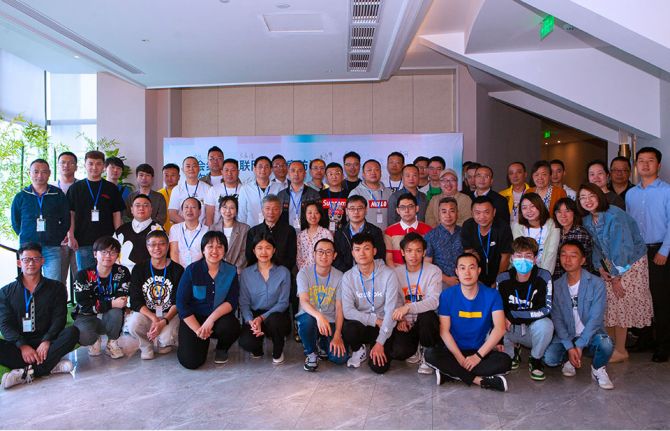
Feature Story
Strengthening partnership with the Global Business Coalition
23 February 2009
23 February 2009 23 February 2009
(from left) UNAIDS Executive Director Michel Sidibé met John Tedstrom, President of the Global Business Coalition on AIDS, Tuberculosis and Malaria, 3 February 2009.
Credit: UNAIDS
On 3 February 2009, UNAIDS Executive Director Michel Sidibé met for the first time with John Tedstrom, President of the Global Business Coalition on AIDS, Tuberculosis and Malaria (GBC). At the meeting, Mr Sidibé explained his vision and priorities for UNAIDS and the business rationale for further engaging the private sector in scaling up universal access to HIV prevention, treatment, care and support. They also discussed some specific ways to strengthen the on-going partnership between UNAIDS and the GBC.
The meeting was followed by a telephone session with over 40 GBC companies from various industry sectors. These “GBC Connections” series are designed to provide GBC members with the opportunity to learn and discuss issues firsthand from thought leaders in the field of AIDS, Tuberculosis and Malaria.
During the phone conversations, Michel Sidibé encouraged companies to focus on five important issues: scale up prevention of mother to child transmission; increase efforts to control TB in people living with HIV; Push for preventive research; development of new medicines; and the establishment of effective advocacy platforms.
Mr Sidibé stressed the need to strengthen and expand existing industry-wide initiatives, to catalyze new public-private partnerships, and to grow more emphasis on UNAIDS country offices to start having closer partnerships with companies in the field. Michel Sidibé also made a strong and urgent appeal to all companies to mobilize human and financial resources for scaling up universal access to HIV prevention, treatment, care and support. GBC member companies showed interest in preventive research and in the focus on saving mothers and babies as one of the key and necessary steps to achieving universal access.
HIV and the workplace
Multinational companies as well as small and medium enterprises play a key role in the response to AIDS. As two out of three people living with HIV go to work each day, the workplace is one of the most effective settings for responding to the epidemic. Existing structures and facilities can be used for HIV prevention, care and support services, while corporate communication systems already in place are ideal for disseminating HIV information. Workplace programmes also help reach populations missed by the public health system (e.g. migrant workers) or can positively spread to the surrounding communities.
Workplace programmes can help ensure broad-based participation by workers as their involvement engenders ownership, less fear of discrimination, greater trust of prevention messages, and higher up-take of services such as testing and treatment.
UNAIDS and the private sector
UNAIDS is convinced the private sector has a vital role to play in the AIDS response and has contributed towards the establishment of over 30 national business coalitions on AIDS worldwide assisting with resources, technical assistance and national political leverage.
The Joint Programme has also built new partnerships across a variety of industry sectors such as the Sherpa pharmaceutical and diagnostic mechanism which fostered key commitments on the part of 17 companies (e.g. Abbott, Aspen, Gilead, GSK, Merck, Pfizer, Ranbaxy) to increase access to treatment, or the hotel Initiative in Mexico which brought over 40 hotels around an HIV prevention campaign and the implementation of long term HIV policies, etc.
For more information please contact Regina Castillo, Chief Private Sector Partnership, UNAIDS email: castillor@unaids.org or Marie Engel, Partnership Advisors email: engelm@unaids.org
Right Hand Content
Feature stories:
Translating intent into action in Ethiopia (25 November 2008)
Business coalitions from Latin America and the Caribbean gather in Brazil (13 October 2008)
UN Secretary-General convenes pharmaceutical companies in New York (09 October 2008)
The Life Initiative – Hotels addressing AIDS (23 July 2008)
External links:
Global Business Coalition on AIDS, Tuberculosis and Malaria (GBC)
Contact:
Regina Castillo, Chief Private Sector Partnership, UNAIDS
Email: castillor@unaids.org
Marie Engel, Partnership Advisor
Email: engelm@unaids.org



